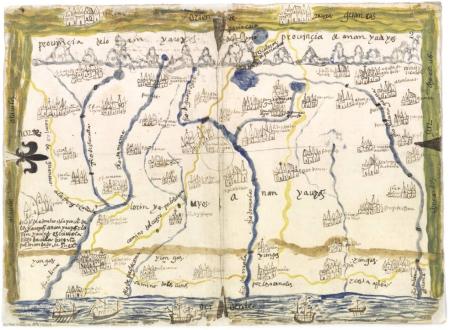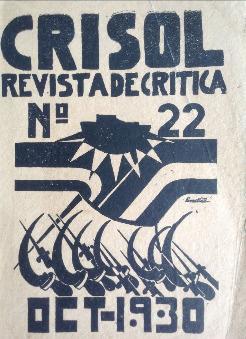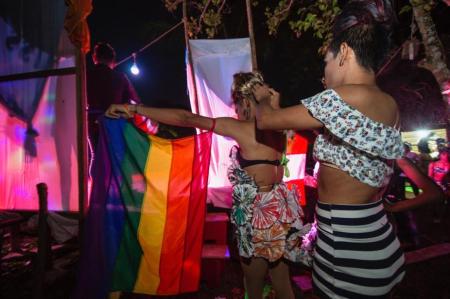About the course
The Core Course for the Graduate Emphasis in Latin American Studies is a yearlong seminar organized as monthly workshops that allow students from different disciplines to come together around the exploration of a single topic. The workshops are conducted as regular academic conferences and all enrolled students are required to take active participation in each event. Students may present their current research insofar as it loosely corresponds to the theme of the workshop. Students who do not have research or paper on the particular topic of the workshop may choose to present (as clearly as possible) an important book or article to the group. (Each workshop has a bibliographical list that constitutes the reading material for that workshop). Students also participate by acting as chairs or discussants of particular sections. Most workshops will count with a guest speaker from outside UCI. Since the workshops run all day, lunch is provided when feasible in budgetary terms. Each workshop ends with a reception and informal dinner.
Previous Courses
Framing Latin American and Caribbean Studies 2024-2025
Humanities 264 I Fridays 12:00 PM – 2:50 PM
Core Course for the Graduate Emphasis in the Center for Latin American and Caribbean Studies
Dr. Heidi Tinsman (History Department) hetinsma@uci.edu
The Core Course for the Graduate Emphasis in Latin American & Caribbean Studies surveys a range of (inter)disciplinary questions and methods related to societies of Latin America and the Caribbean. It interrogates the changing constructions of “Latin America & the Caribbean” as area fields and political imaginaries. The goal is to create a space of intellectual community and debate for UCI graduate students working across a range of disciplines, methods, and topics. Students are encouraged to explore the conceptual framings of their own particular research interests and to place those in dialogue with those of their peers and featured scholars.
The class is organized as a series of weekly workshops on the research and intellectual contributions of a particular scholar. In Spring 2025, the class will center on the scholarship of UCI faculty. We will read and discuss the work of a different scholar each week and attend a public lecture by that scholar during our class period. This is an opportunity for you to get to know UCI faculty and become familiar with new methods and paradigms. Students will be invited to make short presentations on their own research interests and discuss intersections with scholarship we have read. The course grading metric is P/NP.
(Un) Contained: The Workshop in Latin American and Caribbean Studies 2022-2023
Course Code: 28671 LAT AM STUDIES I Fridays 1 – 4 p.m.
Core Course for the Graduate Emphasis in the Center for Latin American and Caribbean Studies
Dr. Rachel O’Toole (History Department) rotoole@uci.edu
The course provokes us to ask who and what contains the peoples of the Americas? Offering case studies of Latin American histories, texts, and communities, the course encourages participants to deconstruct the legacy of area studies logic to ask: what makes sense about ‘Latin America’ to Latin Americans and those who claim inheritance? Through a workshop format, participants are encouraged to present their own research, comment on the work of invited guest scholars, or present on a critical book or article selected from the monthly thematic bibliography. Participants will write short essays responding to the readings, or compose annotated bibliographies, or write longer papers based on original research, or develop a teaching module, or a combination of these options.
To build a collaborative community of scholars across the campus, we ask all participants gather for a meal each quarter with our invited guest scholars! Please note: We meet three or four times a quarter. Students register each quarter for the course. But only during spring 2023 quarter will four credits be allocated. The entire course is Pass/Fail.
Fall 2022: Contesting Coloniality and Coercing Labor
With the visit of Andean archeologist Dr. Carla Hernández Garavito (UCSC) on October 7, we interrogate the limits of colonial rule and national containment of the political autonomy and labor activism of Indigenous, African, and Asian peoples of the Americas.

September 23: Who says it is Latin American and Caribbean Studies?
October 7: Andean Indigenous Contestations in the Colonial Lettered City
Fall Lunch
November 4: Haiti’s Revolution and Afro-Latin American Modernity
December 2: Labor, Migrations, and the Asian Diasporas of the Americas

https://www.iifl.unam.mx/culturasdelaprensa/items/show/6.
Winter 2023: Imperial Fantasies and Revolutionary Cultures
This quarter we illuminate hoe U.S. and European fantasies clashed with the demands of Panamanian workers and the work of Mexican journalists. Examining creative strategies of domestica laborers and revolutionary artists, this quarter we examine how the violence of liberal and neo-liberal governments were met by the ingenuity of domestic workers, poets, and journalists who contested repressive state regimes.
January 13: Panama’s Caribbean: Gender, Racisms, and Imperial Sex Fantasies
February 3: Mexico: Insurgent Democracies and Media Cultures [Winter Dinner]
March 3: Neo-Liberal Ruptures within State Violence
Spring 2023: Breaking Boundaries: Queer, Immigrant, and Indigenous Activism
In the spring, with the visit of Dr. Justin Perez (UCSC) on April 7, the seminar will explore how queer activism, immigrant rights movements, and Indigenous environmental groups have ruptured state boundaries. Contrasting virtual and analog possibilities we ask how archives and museums, hold, curate, and contain the peoples of the Americas.

April 7: Queer Practices, State Boundaries Spring Dinner
May 5: Violence and Communities: Memories, Archives, Museums, and Documentation
June 2: Indigenous Ontologies, Emergency Environments, and Fantastic Futures
2019-2020, "(Un)Contained Latin American Studies: Borders, Archives, and Vessels," Hum 265ABC, taught by Prof. Rachel O'Toole
A year-long foundation workshop on Latin American Studies, the course provokes us to ask who and what contains the peoples of the Americas? The course surveys the history, the geography, and the economies of Latin America while encouraging participants to deconstruct the legacy of area studies logic. By exploring how people of Latin America theorized, negotiated, and resisted, we will interrogate disciplinary methods of literary studies, history, anthropology, political science, sociology, legal studies, and performance theory to ask ourselves: What makes sense about Latin America to Latin Americans?
Fall 2020: Borders & Contagion
Rooted in the documentary work of filmmaker Dr. Mael Vizcarra (Emory University) from Tijuana (Mexico), in the fall we will interrogate scholarly, political, and historical borders as well as the people, ideas, and spirits who crossed.
October: Who says it is Latin American Studies?
November: Everyday Boundaries and Borderlands
December: Contagion and Containment
Winter 2021: Archives & Freedom
In the winter, with the visit of literary scholar Dr. Sara Johnson and historian Dr. John Marquez, we will investigate how archives can be reclaimed by those who are filed away by the state, the police, and the church.
January: The Law and the Making of Counterarchives
February: Revolutionary Blackness
March: The State: Paper Archives, Truth Commissions, and Shifting Wikileaks
Spring 2021: Vessels & Containment
In the spring, with the visit of Dr. Mary Weismantel (Northwestern University), we consider how archeologists, anthropologists, and curators cannot contain queer identities, scientific knowledge, or natural forces that surge throughout the Americas.
April: Moche Sex Pots and Queer Identities:
May: Whose Science?: Population Control, Epidemic Disease, and Good Death
June: Water Wars: Floods, Famine, and Climate Change
The class will meet three times a quarter for three hours each meeting with our first meeting on Friday, October 2 at 1 p.m. (location to be announced). During each quarter, we will discuss and present the readings, films, and multimedia sources. Participants will engage as presenters or commentators during the symposia of invited guest scholars. Students will write short essays responding to the readings, compose extensive annotated bibliographies, write longer papers based on original research, develop a teaching module, or a combination of these options.
2015-16 Core Course Summary:
Religiosity, animality and popular memory. (FALL) This workshop focused mostly on the Caribbean region. We counted with the visit of Professor Robin Derby (UCLA) who presented part of her work on vampirism and animal studies in Dominican Republic. Students presented on Taussig, Agamben, Ortiz, Metraux among others.
Neoliberalism and dictatorships in Latin America. (Fall) This workshop revised the basic bibliography on neo-liberalism (Foucault, Naomi Klein, Wendy Brown, David Harvey). We discussed at length the work of two Latin American authors, Bernardo Sorj, La democracia inesperada (Brazil) and Verónica Gago, La razón populista (Argentina). Professor Alessandro Fornazzari visited from UCR and discussed his book on neo-liberalism in Chile with the group.
Visual contestations in Latin America (Winter) This workshop coincided with the Latin American film festival and the visit of Professor Julio Ramos (emeritus UC-Berkeley) who presented his film project on Diego Rivera’s murals in Detroit. We shared readings and presentations on tourism of archaeological ruins, the relationship between pop art and Cuban revolution, and the history of painting and indigenismo. The workshop included a very animated discussion of the Brazilian photographer Sebastião Salgado and different trends in Latin American photography.
Andes: past rebellions and present utopias. (Spring) Professor Charles Walker (UC Davis) gave a presentation on his recent book on the Tupac Amaru rebellion. Most of the workshop was devoted to contemporary issues in the Andes with readings by Marisol de la Cadena, Silvia Rivera Cusicanqui and Alvaro García Linera. Independent student presentations included topics such as the geo-politics of coca plantation and race and sexuality in the Colombian Andes.
Internal borders (Spring) A supplement to the workshop on neo-liberalism, this meeting explored how what Jacques Rancière have called the weakening of the common affected historical and material practices in Latin America. Readings included James Holston and Teresa Caldeira on Brazil, Maristella Svampa on Argentina and Sergio Gonzalez Rodríguez on femicides in Ciudad Juarez.
2016-2017 Core Course Summary
Please notice that while the date of the workshop is always on Friday, the exact time will be announced. The time reflected in the schedule of classes IS NOT the actual time of the workshop. It is a time posted to facilitate your enrollment in other classes since the system will reject your registration if it notices any overlap.
Fall 2016. Workshops one and two will explore the peculiar development by which the establishment of lasting democracies in Latin America following the cold war is almost contemporary with the erosion of traditional liberal democracy and the rising of new forms of democratic participation in the region. Rather than focusing exclusively on popular mobilization, we want to interrogate the coexistence of massive street mobilizations, the rise of social movements and the creation of new forms of participation (for instance through the transformations in the access to audio-visual production and reproduction) with the persistent disenchantment with institutional democratic processes. Is it possible to speak in Latin America of an insurgent democracy? What categories would allow us to make sense of a present in which the legitimate investment of power is hotly contested and yet its economic bases are perceived as unmovable? Workshop one will explore this problem in predominantly urban areas (Brazil, Argentina, Chile, Mexico) while workshop two will be devoted mostly to the Andean region in which the same historical process is incarnated under figures related to indigenous heritages and histories.
Winter 2017
Workshop three will be devoted to the importance of the visual in recent Latin American history. Authors, problems and areas include: testimonial film and testimonial photography, the hyper-visibility of the poor (Salgado), state propaganda and pop culture (Cuba) among others. Guest speaker: Natalia Brizuela (UC-Bekerley)
Workshop four will center on the Afro-Cuban and Afro-Brazilian problems, history and experiences. We will explore why the affirmation of an Afro culture took the forms that it did in each case and how are these options portrayed today in the larger sphere of Diaspora studies and Pan-Africanist movements. Guest speaker: Jorge Duany. Expert on migration and Diaspora; director of the Cuban Research Institute at Florida International University.
Spring 2017
Workshop five, titled “The lettered city and the runaway” revisits Angel Rama’s famous designation of Latin American space as a scripted, subjugating and ultimately anti-democratic form of domination aimed to tame a more anarchic drive for the habitation of the Latin American space. The interest of the workshop is not so much on the historical accuracy of Rama’s description as it is on looking to the forms of policing that have traversed Latin American history and its many and constant contestations. In addition to Angel Rama, readings will include Gruzinski’s The Conquest of Mexico, Pablo Ortiz Monasterio’s photographic essay The Last City and Maristella Svampa’d study of the piquetero movement in Argentina as a politically de-territorializing force. Guest speaker: Jeff Gould, Historian and Director of Latin American Studies at the University of Indiana.
Workshop six. While we have several options available for the last workshop, we will decide together the subject that we will be broaching for the last workshop at a business meeting.
